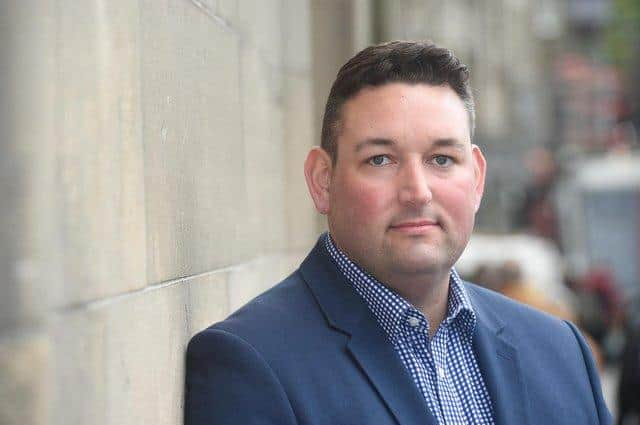MSP warns rise in children treated for eating disorders in Lothians is ‘tip of iceberg’
and live on Freeview channel 276
Let us know what you think and join the conversation at the bottom of this article.
It comes as the latest figures from the Scottish Government show the number of children admitted to a mental health or specialist services for an eating disorder in Lothians was up by more than 20 per cent from 23 up to 28 in 2019, one of the biggest increases across all health boards in Scotland.
Miles Briggs MSP said the rise in the Lothians – and fifteen per cent increase in total for Scotland - in years up to 201 is worrying.


Advertisement
Hide AdAdvertisement
Hide AdThe Conservative MSP for Lothians fears many could be left suffering without help.
Beat backed concerns about rise in numbers admitted to services. The eating disorder charity said the figures show urgent need for earlier intervention as the figures only include children who are ‘medically unwell enough’ to get admitted to crisis-driven services.
A recent report by the Mental Welfare Commission for Scotland revealed a lack of significant lack of support and delays in accessing services.
READ MORE: Half of Scottish youth stuck on year-long mental health waiting list are from NHS Lothian
Mr Briggs said: “Over the last ten years there has been a very concerning rise in the number of children treated for eating disorders.
Advertisement
Hide AdAdvertisement
Hide Ad“Increased demand and long waiting times for children’s mental health services means that many young people aren’t receiving the support they need.
“These figures could just be the tip of the iceberg, we don’t know how many are diagnosed or are suffering without diagnosis and treatment.
“This is a particular concern for the last year with NHS Scotland’s focus being diverted to focus on Covid-19.”
READ MORE: Nikki Grahame: Scots anorexia patient tells of her 20-year friendship with the Big Brother star
Ellen Maloney, an ambassador for Beat charity, who has battled anorexia since she was 12-years-old said: “We’ve seen a 400 per cent increase in calls to services during the pandemic.
Advertisement
Hide AdAdvertisement
Hide Ad"One of the big things about covid-19 is the loss of external people to pick up on early signs. Children hide away eating disorders and are less likely to talk to family about it. And they pick up on stress so that’s exacerbated during covid-19. But even if they do seek help they are likely turned away and told they have to lose more weight. Services are in crisis mode so only treat those medically unwell enough. Families are often left to cope with a child who is struggling. Its really shocking because we know early intervention works.
Professor Alex McMahon, Director of Nursing, Midwifery & AHP's for NHS Lothian, said: “There has been a substantial national increase in Eating Disorder presentations and we have seen this reflected in the referrals to our service, which is the regional centre for the whole of South East Scotland."
“We have been working hard to reduce waiting times for our Child and Adolescent Mental Health Services (CAMHS). This will allow CAMHS to invest further in our capacity to deliver new models of care including a 24/7 Unscheduled Care Team for young people in crisis and embedding Primary Care Mental Health Workers in a greater range of community resources where young people may first present seeking support. This will help with earlier interventions and role of our specialist eating disorder service.”
The Scottish Government was contacted for comment.
A message from the Editor:
Thank you for reading this article. We're more reliant on your support than ever as the shift in consumer habits brought about by coronavirus impacts our advertisers.
If you haven't already, please consider supporting our trusted, fact-checked journalism by taking out a digital subscription.
Comment Guidelines
National World encourages reader discussion on our stories. User feedback, insights and back-and-forth exchanges add a rich layer of context to reporting. Please review our Community Guidelines before commenting.